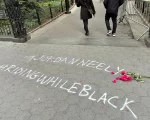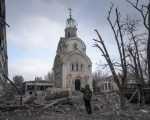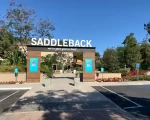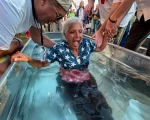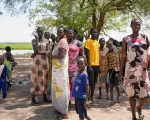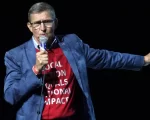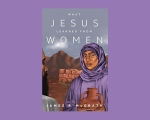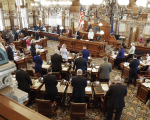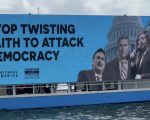News
Saving the Farm: Heartland Clergy Train to Prevent Agriculture Workers’ Suicides
States such as Minnesota and South Dakota are offering suicide prevention training to clergy – a crucial, trusted presence in rural America. In the farmland, churches remain essential social gathering points.
Parable of a Bad Samaritan
The reflex to support certain types of violence has led to the quick canonization of vigilantes as new American saints. So this issue of A Public Witness documents this trend in recent political discourse and considers the dangerous gospel it preaches.
For 25th Year, State Department Reports on Threats, Triumphs in Religious Freedom
The report, which assesses conditions in 199 countries, also looks at policies and laws, including those about blasphemy and apostasy, that ‘criminalize religious expression.’
Saddleback Church Appeals Southern Baptist Convention Ouster Over Woman Pastor
It is one of three churches appealing decisions recently made by the denomination’s Executive Committee to remove eight congregations from official affiliation.
Latino Faith Leaders to Gather for Summit on Christian Nationalism
Christian nationalism has ‘infiltrated’ the Latino Christian community ‘in such a powerful way,’ said one clergyman, ‘that they are not even aware of the position they are supporting.’
Sudan’s Increased Fighting Empties Christian Clerics From the Capital Khartoum
The brewing civil war in the country has convinced Christians and their leaders to leave the capital en masse, with many fleeing across the border to South Sudan.
Michael Flynn’s Soup for the Soulless
This issue of A Public Witness highlights some Christians challenging the rhetoric of Michael Flynn and others at the ReAwaken America Tour before offering a theological reminder about how we talk about those with whom we disagree.
Review: What Jesus Learned from Women
In "What Jesus Learned from Women" author James F. McGrath fleshes out the nature of Jesus’s person and helps us recognize the role of women in the biblical story.
Church and State: Republicans Revel in Divine Plan to Turn Kansas Into ‘Conservative Sanctuary’
Lawmakers routinely entertain policy ideas shaped by fringe religious views — restrictions placed on transgender residents, anti-abortion propaganda, tax dollars for private schools, a refusal to acknowledge systemic racism.
Christian Leaders Continue Opposition to ReAwaken America Tour — at Trump Resort
A group of local clergy and national faith leaders spoke in opposition to the Trump National Doral Miami stop of the ReAwaken America Tour.


